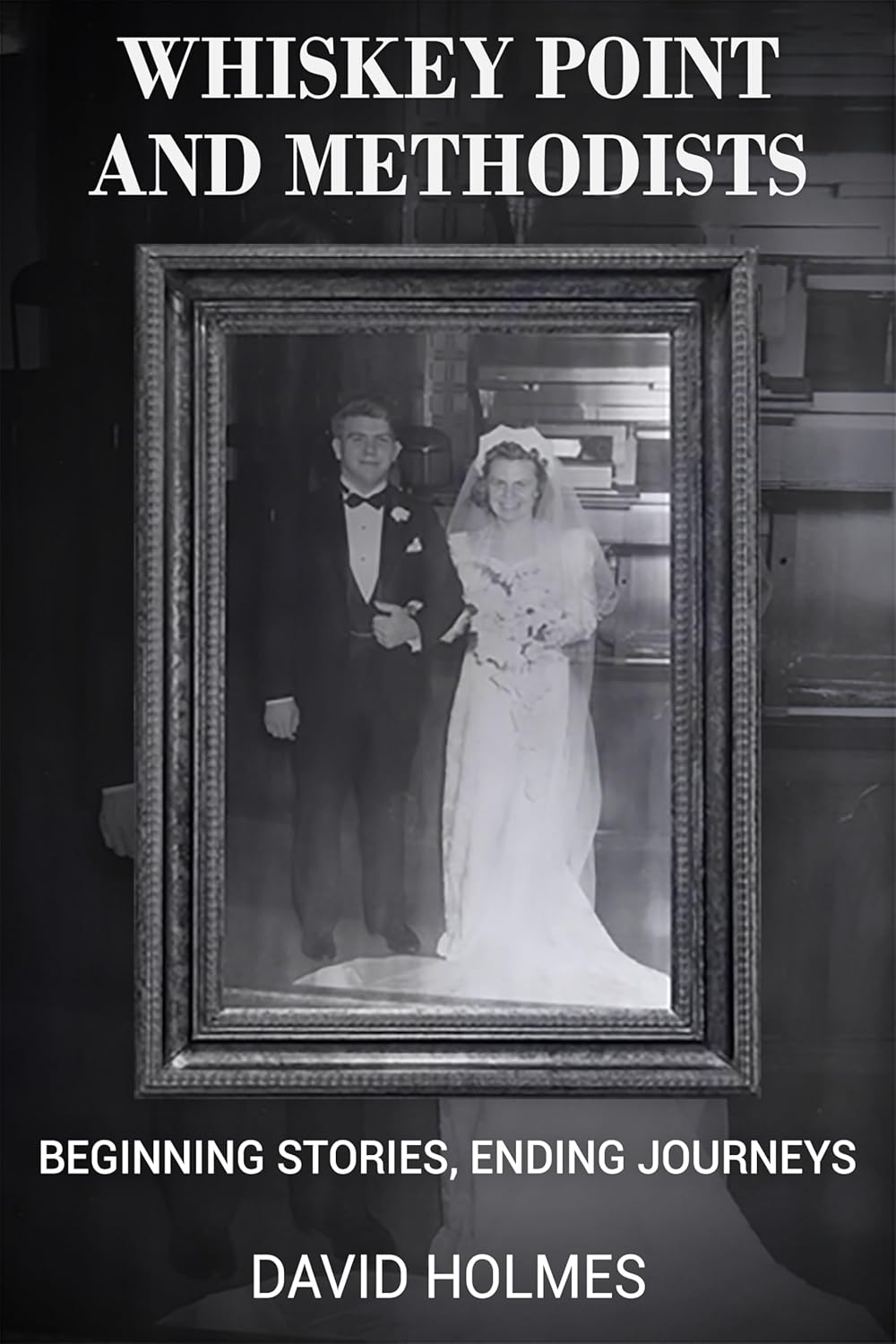
There is a quiet, a particular type of silence, in an attic, the kind that breathes its last before you lift the cover on a rusty old box, never knowing which memory will bubble up in the dust. In Whiskey Point and Methodists, David Holmes welcomes readers into this holy silence, where time is preserved in letters, photographs, and half-remembered tales. The book is not simply a family memoir; it is a soft digging of fact from previous generations, one shattering artifact at a time.
Holmes constructs his story from the contents of literal and figurative attics: family letters, individual journals, family history, and tattered report cards. His quest starts not with a grand narrative, but with the mundane, the scrape of pen on paper, the form of a signature, a faded receipt slipped behind a photograph. These “dust boxes” hold more than sentimentality. They expose the values, paradoxes, and compromises that define a family’s identity.
The attic is a backdrop where Irish Catholic grit confronts Methodist fineness, where revolt from childhood clashes with closely guarded conventions. His father, who grew up amidst the gritty noises of Chicago’s Union Stockyards and the rawness of Whiskey Point, lives in harsh opposition to his mother’s refined Methodist upbringing in Oak Park. But it is in the tension between these contrasts that the true truths are revealed, not in bombastic declarations, but in small, revealing details: a calloused hand putting a violin on a child’s lap, or a grandmother lighting Christmas candles on a tree after the children are in bed.
One of Holmes’s strongest qualities as a storyteller is his ability to bring out the emotional undertone beneath the facts. The tales that are spoken in the attics are usually the ones never uttered out loud, of shattered dreams, strained marriages, and hidden sorrows. They are tales that perhaps were too painful, too mundane, or too exposed to emerge in the course of living. But in the stillness of recollection, they speak. Holmes does not shy away from this weakness. Rather, he pays it tribute, braiding it into a family portrait that is at the same time intensely personal and deeply universal.
What emerges from these attic steps is not just a clearer view of the past; it is a deeper understanding of what endures. Love across difference. The struggle for acceptance. The ache of ambition. The courage to grow. These are truths that matter, not only for Holmes’s family, but also for every reader who’s ever stood in their own attic, wondering what stories lie buried in the boxes.
Ultimately, Whiskey Point and Methodists teach us that our histories are dynamic. They breathe, move, and change as we discover them anew. The footsteps in the attic are not just those of yesterday, but our own, retracing, rethinking, repossessing. Holmes demonstrates that at times, the best way to know where we are headed is to clear off where we have been.
